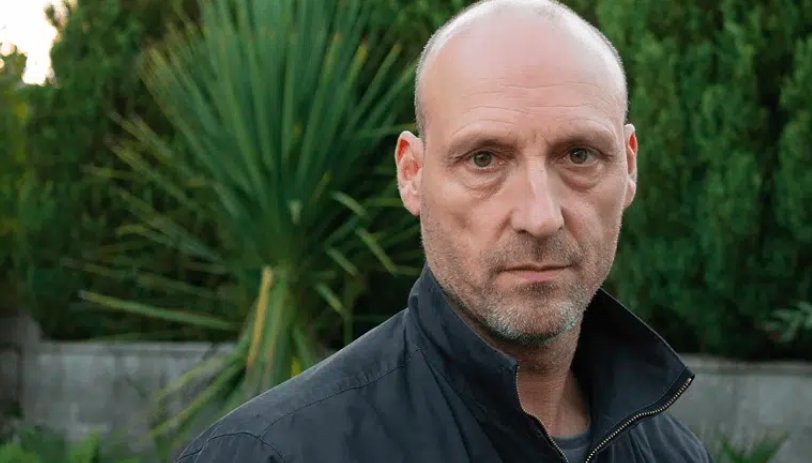A sociology lecturer at Abertay University in Dundee, Scotland, named Stuart Waiton, invited a speaker from a controversial group to discuss biases in rape trials with his students on October 28, 2025. This move quickly turned into a national uproar, with claims of harm to survivors clashing against calls for open debate on fair trials and academic freedom.
The Classroom Talk That Ignited Fury
Stuart Waiton runs a criminology class for fourth-year students. He brought in Marsha Sturgeon from Justice for Innocent Men Scotland, or JIMS, to talk about rape shield laws. These laws limit questions about a victim’s past sexual history to protect them in court.
The session aimed to push students to think critically about the justice system. Sturgeon shared views on how these laws might lead to unfair outcomes for accused men. Many students found the talk eye-opening, but others felt shocked and upset right away.
Word spread fast on social media. Some students said the discussion risked hurting rape survivors by giving air to ideas that downplay their experiences. This sparked the first wave of anger, pulling in activists and local groups.

Backlash Hits Lecturer and University
Soon after the talk, graffiti appeared near the university targeting Waiton. Messages called him out harshly, linking him to harmful views. Online, people flooded social media with criticism, accusing him of promoting dangerous ideas.
Waiton has a track record of bold opinions. In past years, he spoke against what he sees as too much focus on victims in courts. He even joined a JIMS protest outside the Scottish Parliament in September 2025, where he argued the system favors complainers over fair process.
A rape survivor, known only as Miss M, stepped forward with her own story. She wrote to university leaders about a 2018 article by Waiton that described her civil win against her attacker as just a drunken night gone wrong. She said it made her feel blamed and added to her pain.
This personal complaint added fuel to the fire. Students started sharing their fears about campus safety and support for those affected by sexual violence.
JIMS Group Under Fire for Survivor Harassment
JIMS claims to fight for men wrongly accused in sexual offense cases. The group points to what they call flaws in evidence rules and high conviction rates without strong proof. They push for changes to make trials more balanced.
But critics paint a different picture. JIMS faces accusations of targeting rape survivors online. Reports say they have shared victims’ medical records, shown up at courts to intimidate witnesses, and used slurs like calling one survivor a skank.
In one case, the group rallied for convicted rapists, questioning their guilt despite court rulings. This led to a ban on their GoFundMe page for a documentary project just days ago. Fundraising stopped after complaints about their tactics.
To highlight key issues with JIMS, here is a quick list:
- Accused of doxxing survivors by posting personal details online.
- Attended trials to pressure witnesses, raising safety concerns.
- Supported appeals for men convicted in multiple rape cases.
- Banned from platforms for violating hate speech rules.
These actions have made JIMS a lightning rod in debates over men’s rights versus survivor protection.
Broader Debate on Fair Trials and Academic Freedom
The Abertay incident ties into bigger fights over Scotland’s rape laws. On November 14, 2025, the Supreme Court ruled that rape shield laws might break fair trial rights for the accused. Judges warned that limiting evidence could lead to miscarriages of justice.
This ruling came amid low conviction rates for rapes, now at just 12.8 percent of reported cases dropped before trial. Groups like Rape Crisis Scotland called it a step back, while others say it protects innocent people.
Waiton’s case raises questions about free speech in universities. Supporters argue educators should expose students to tough ideas to build critical thinking. Critics worry it normalizes bias against victims and chills open talk on campuses.
Recent events show the tension. In England, similar rows over gender views led to professor resignations. Here in Scotland, the focus stays on balancing victim rights with due process.
For a clear view of the timeline, check this table:
| Date | Event |
|---|---|
| September 9, 2025 | Waiton speaks at JIMS protest outside Holyrood. |
| October 28, 2025 | JIMS speaker addresses Abertay students. |
| October 30, 2025 | University launches probe; backlash grows online. |
| November 4, 2025 | Survivor Miss M complains about Waiton’s past article. |
| November 14, 2025 | Supreme Court rules on rape shield laws. |
| November 16, 2025 | Counter-lecture by police rape team announced. |
| November 21, 2025 | Student protest held outside university library. |
This sequence shows how one class talk snowballed into a national story.
University Response and Planned Protests
Abertay University acted fast. Leaders said the JIMS talk was not approved and does not match their values. They started a review of how guest speakers get okayed and boosted support for gender-based violence awareness.
To counter the session, a police rape investigations team spoke on campus on November 16, 2025. Women’s aid groups joined to share survivor perspectives and safety tips. Students praised this as a positive step.
Protests kept coming. On November 21, students gathered peacefully outside the library. They demanded better policies on controversial talks and more training for staff on trauma impacts.
Waiton defended his choice, calling critics reactionary. He stressed the need to question laws without fear. The university now faces calls to act on student worries while upholding free inquiry.
This clash highlights real struggles in education and justice. It pushes everyone to think about how to handle sensitive topics fairly.
Readers, what do you think about balancing free speech and survivor safety in classrooms? Share your views in the comments below and pass this article along to spark more discussion.


















